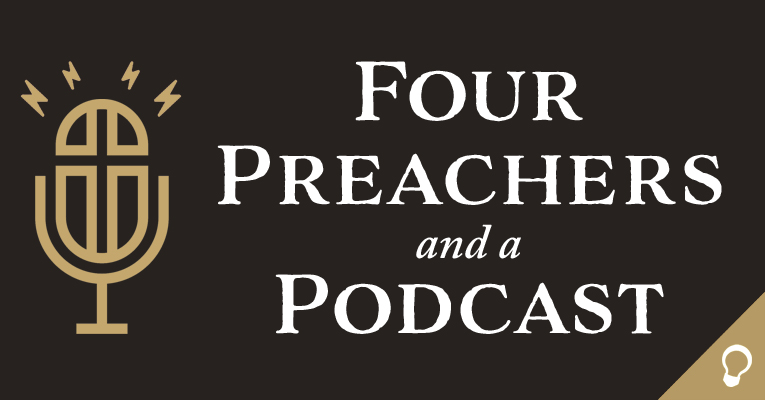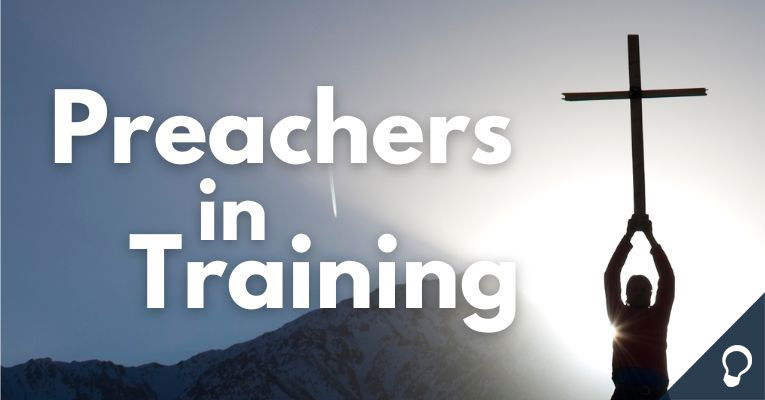
Podcast: Play in new window | Download

Season 2, Episode 7
For Friday, September 18, 2015
“But, Where Are The Nine?”
HOST: Wade Webster
Show Notes:
- Luke records the healing of ten lepers by Christ (Lk. 17:11-19). Amazingly, only one of the lepers – a Samaritan, returned to give thanks. Jesus used the occasion to teach a powerful lesson about gratitude. He asked, “Were there not ten cleansed? but where are the nine?” I am convinced that Jesus is still looking for the nine today. After all, many of those who have been cleansed of a far greater problem than leprosy forget to return and give thanks. As we get ready to worship this week, we will focus will on thankfulness.
Episode Transcript:
Luke, the beloved physician, recorded a number of sick people that Jesus healed. As a physician, certain miracles must have been especially meaningful to Luke. I believe that the healing of lepers must have fallen into this category. After all, leprosy was a disease for which Luke and other physicians of his day had no answer. In fact, in spite of modern medical discoveries, there remain an estimated 10 million lepers around the world.
In his biography of Jesus, Luke records the healing of ten lepers. Let’s read the text together: “And it came to pass, as he went to Jerusalem, that he passed through the midst of Samaria and Galilee. And as he entered into a certain village, there met him ten men that were lepers, which stood afar off: And they lifted up their voices, and said, Jesus, Master, have mercy on us. And when he saw them, he said unto them, Go shew yourselves unto the priests. And it came to pass, that, as they went, they were cleansed. And one of them, when he saw that he was healed, turned back, and with a loud voice glorified God, And fell down on his face at his feet, giving him thanks: and he was a Samaritan. And Jesus answering said, Were there not ten cleansed? but where are the nine? There are not found that returned to give glory to God, save this stranger. And he said unto him, Arise, go thy way: thy faith hath made thee whole” (Lk. 17:11-19).
As we consider this context, we will see three things: the Lord, the lepers, and the lesson.
First, let’s look at the Lord. The lepers knew who the Lord was. They called out, “Jesus, Master, have mercy on us” (Lk. 17:13). The name Jesus means Savior. The lepers looked to Jesus to save them from leprosy. Only the Great Physician could do this. The name Master means commander. The lepers knew that Jesus could command the leprosy to leave them. The presence of Jesus must have stirred hope within their hearts. Those that were afar off would be cleansed and made nigh.
Luke records that Jesus was on his way to Jerusalem (Lk. 17:11). It was the beginning of his last trip there. He was on His way to deal with a problem far greater than leprosy. He was going to Jerusalem to cleanse men of sin.
Second, let’s look at the lepers. There were ten lepers that met Jesus at the entrance to a certain village (Lk. 17:12). As lepers, they were forced to live outside of the village. They must have set up at the entrance of this village to beg for alms.
Luke records that the lepers “stood afar off” (Lk. 17:12). In the Pulpit Commentary, Spence suggests that the legal distance required was 100 paces. This explains why it was necessary for them to lift up their voices (Lk. 17:13).
One of the lepers, and the hero of the story, was a Samaritan (Lk. 17:16). In the minds of many, he had two strikes against him. He was not only a leper, but also a Samaritan. As you likely recall, the Jews and the Samaritans generally had no dealings (John 4:9). Samaritans were outcasts as far as Jews were concerned. However, leprosy obliterated all distinctions of race. With leprosy, society was divided into two classes – clean and unclean.
Luke records that the lepers asked for mercy (Lk. 17:13). As noted earlier, the lepers likely sat in the recorded location to ask for alms. However, on this occasion, they didn’t ask for alms. They didn’t request silver or gold (cf. Acts 3:1-8). They asked for something far greater – mercy. In faith, they believed that Jesus could give them cleansing. With six words – “Go show yourselves unto the priests” – Jesus cleansed the ten lepers (Lk. 17:14). There was only an implied promise in Christ’s words. Had there been an outright promise, it would have been easier to obey. The Lord’s command required a great deal of faith. The lepers were to go as cleansed men, even though they were at the moment still lepers. They had to go in faith (cf. Lk. 5:5). Their leprosy was removed “as they went” (Lk. 17:14).
Luke records that all but one of the lepers continued on their way to the priest. One of the men, the Samaritan, turned back to thank Jesus. Some suggest that the Samaritan turned back because he could not enter the temple or show himself to the priest as the others could. After all, he wasn’t a Jew. Where could he go, but to the Lord? However, there seems to have been a greater reason why he turned back. He turned back to give thanks.
It should be noted that the nine Jewish lepers were simply doing what Jesus had commanded them to do. They were going to show themselves to the priest. J. Noel Meredith noted that they passed the test of faith, but failed the test of love. The Samaritan passed both tests.
Third, let’s look at the lesson. When only one leper returned to give thanks, Jesus asked, “Were there not ten cleansed? But where are the nine?” (Lk. 17:17).
It should be noted that the Lord recognized and rebuked the ingratitude of the nine. The fact that the one that returned was a Samaritan was a great rebuke to the proud Pharisees. On another occasion, Jesus used another Samaritan, in much the same way. In the parable of the Good Samaritan, it was the Samaritan, rather than the priest or Levite, that helped the wounded man (Lk. 10:30-37).
Someone has noted that all ten lepers cried for mercy. All ten lepers rejoiced at the cleansing. However, only one leper returned to give thanks.
The lesson remains the same today. We should give thanks to God for the blessings that we receive from His hands. Paul wrote, “And let the peace of God rule in your hearts, to the which also ye are called in one body; and be ye thankful” (Col. 3:15). Worship is one of the key ways that we can show our gratitude. As we enter into His courts, we must come with thanksgiving. The psalmist wrote, “O come, let us sing unto the Lord: let us make a joyful noise to the rock of our salvation. Let us come before his presence with thanksgiving, and make a joyful noise unto him with psalms. For the Lord is a great God, and a great King above all gods. In his hand are the deep places of the earth: the strength of the hills is his also. The sea is his, and he made it: and his hands formed the dry land. O come, let us worship and bow down: let us kneel before the Lord our maker. For he is our God; and we are the people of his pasture, and the sheep of his hand” (Psa. 95:1-7).
I am convinced that Jesus is still asking about the nine today. After all, many who have been cleansed of a far greater problem than leprosy fail to return to give thanks. As we get ready to worship this week, let’s make sure that we show our gratitude to God.
Your Feedback
- Email: wade@thelightnetwork.tv
- Voicemail: 903-26-LIGHT (903-265-4448)
- If you enjoyed the show, please rate it on iTunes and write a brief review. That would help tremendously in getting the word out! Thanks.
Previous Episodes
Subscription Links






